
"Everything Must Go" is a song by Welsh alternative rock band Manic Street Preachers, released as the second single from their fourth studio album, Everything Must Go (1996), on 22 July 1996. The song reached number five on the UK Singles Chart.

The Remote Part is the third studio album by Scottish rock band Idlewild, released on 15 July 2002 by Parlophone. As they were becoming increasingly aware of their label's interest in them and their demos, the band's musical direction was being steered by guitarist Rod Jones. For the first half of 2001, the band recorded songs with producers Stephen Street and Lenny Kaye. Due to the uneven nature of the songs done between tours, they spent some time reworking 20 tracks in the Scottish Highlands. They recorded at Rockfield Studios in Wales, RAK Studios in London, and Sawmills Studios in Cornwall with producer Dave Eringa. Described as an alternative rock and indie rock record, it lacked the punk rock elements of their previous work.

100 Broken Windows is the second studio album by Scottish rock band Idlewild, released on 9 May 2000. While touring in support of their debut studio album Hope Is Important (1998), the band wrote and recorded its follow-up in stages. Sessions were done between May and November 1999 at a variety of studios: AIR in London, Jacob's in Surrey, Rockfield in Wales, and Electrical Audio, Chicago. Initial recording with Bob Weston resulted in unremarkable material, by which point they switched to working with producer Dave Eringa. Described as an indie punk album, 100 Broken Windows has been compared to R.E.M. and Hüsker Dü.

"Cigarettes & Alcohol" is a song by the English rock band Oasis, written by Noel Gallagher. It was released on 10 October 1994 as the fourth and final single from their debut album Definitely Maybe (1994), and their second to enter the UK top ten in the United Kingdom, peaking at number 7, eventually spending 79 weeks on the charts. On 13 March 2020, nearly 26 years after its release, the song was certified Platinum, indicating 600,000 sales.
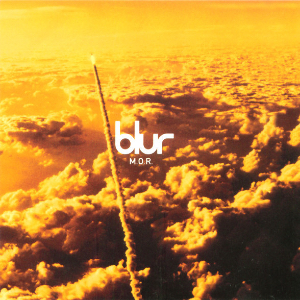
"M.O.R." is a song by English rock band Blur from their eponymous album. Released on 15 September 1997, "M.O.R." reached number 15 in the UK Singles Chart on its release as a single in September 1997. Worldwide, it reached number 45 in New Zealand and also charted in Australia, Canada, and the United States.

Idlewild are a Scottish rock band formed in Edinburgh in 1995. The band's line-up consists of Roddy Woomble, Rod Jones, Colin Newton (drums), Andrew Mitchell (bass), and Luciano Rossi (keyboards). To date, Idlewild have released nine full-length studio albums.
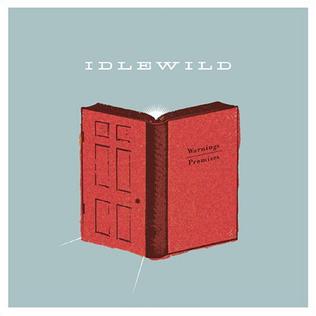
Warnings/Promises is the fourth studio album by Scottish rock band Idlewild, released on 7 March 2005 by Parlophone. Following the release of their third studio album The Remote Part (2002), Gavin Fox replaced bassist Bob Fairfoull, and touring guitarist Allan Stewart became a permanent member. They spent the majority of 2003 writing material, before traveling to Malmö, Sweden to record at Tambourine Studios with producer Dave Eringa. After finishing five tracks, they went to Los Angeles to work at Sunset Sound Recorders with producer Tony Hoffer. Due to the laidback nature of the sessions, the band had to re-record everything; recording concluded in October 2004. Described as a college rock and folk rock album, Warnings/Promises emphasized more acoustic instrumentation than its predecessor.

Drawn from Memory is the second album by English rock band Embrace, released on 27 March 2000 by Mobetta, Hut, and Virgin Records. Following the release of their debut studio album The Good Will Out (1998), touring keyboardist Mickey Dale became an official member. Frontman Danny McNamara began suffering from writer's block, leaving guitarist Richard McNamara to handle the writing. Sessions were done at Batsford Park Manor in Gloucestershire, Olympic Studios in London, and Soundworks Studios in Leeds. Tristin Norwell and the band producer the entire album, bar "You're Not Alone", which was produced by Hugo Nicolson. Songs on the album centred around the arrangements and the interplay between instruments, instead of being melody-driven.
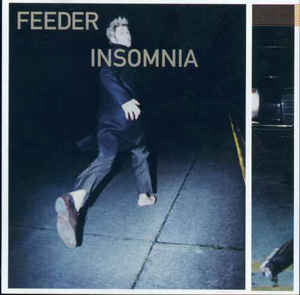
"Insomnia" is a song by Welsh rock band Feeder, released as the second single from their album Yesterday Went Too Soon. It reached number 22 on the UK Singles Chart and was at the time Feeder's fourth consecutive single to reach the top 40.
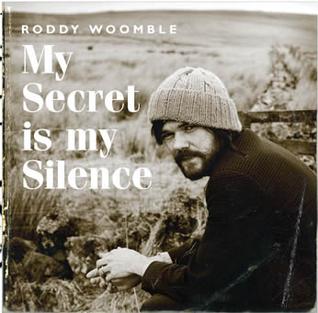
My Secret Is My Silence is the debut studio album by Idlewild lead vocalist Roddy Woomble, released 24 July 2006 on Pure Records.

Fin de Siècle is the sixth album by Northern Irish pop band the Divine Comedy. It was released on 31 August 1998 by Setanta Records. Following the release of fifth studio album A Short Album About Love (1997), frontman Neil Hannon demoed new material at his flat in Clapham. During this time, the relationship between the band and their label Setanta Records was straining as a result of heated discussions over tour costs and studio sessions. They recorded their next album in three studios with Jon Jacobs as the main producer and Hannon co-producing. Fin de Siècle is a chamber pop concept album that details living in the 20th century.

"All That I Need" is the third single from Irish boy band Boyzone's third studio album, Where We Belong (1998). It was written and produced by Carl Sturken and Evan Rogers with remix and additional production by Rude Boy, Andy Bradfield, Trevor Steel, and John Holliday. This made it their first original single release not to be co-written by any members of the group.

"The Bartender and the Thief" is a song by Welsh rock band Stereophonics, written by the band in April 1998. The song is the second track on their second album, Performance and Cocktails (1999). "Bartender" was the first single taken from Performance and Cocktails and was released on 9 November 1998, reaching number three on the UK Singles Chart. The music video features the band playing at Kanchanaburi Province, Thailand, and is based on the Francis Ford Coppola movie Apocalypse Now.
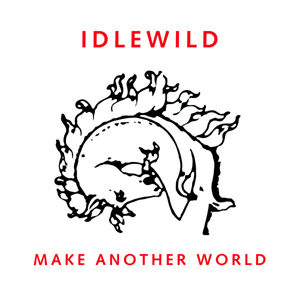
Make Another World is the fifth full-length studio album by the Scottish rock band Idlewild, released on 5 March 2007 through Sequel Records. The album is the first with bass guitarist Gareth Russell, following Gavin Fox's departure at the end of 2005, and is their first since leaving Parlophone. Vocalist Roddy Woomble said that the band "made a conscious decision to make a strong, loud, rock record."

"Girl on TV" is a song written and performed by American boy band LFO. It was released in November 1999 from their debut album, LFO (1999). The song peaked at number 10 on the US Billboard Hot 100 and number six in the United Kingdom, where it is their highest-charting hit. "Girl on TV" was certified gold by the Recording Industry Association of America (RIAA) in December 1999 for the shipment of over 500,000 copies in the US. This was the band's first single to feature Devin Lima on lead vocals.

"There's Your Trouble" is a song written by Mark Selby and Tia Sillers and recorded by American country music band Dixie Chicks. It was released in March 1998 as the second single from the band's fourth studio album, Wide Open Spaces (1998), and peaked at No. 1 on the US Billboard Hot Country Singles & Tracks chart. The following year, the song was released in the United Kingdom and became the band's highest-charting single there when it peaked at No. 26.

"In Our Lifetime" is a song by Scottish pop rock band Texas. The first single from their fifth studio album, The Hush (1999), it was released on 12 April 1999 in Europe and on 19 April 1999 in the United Kingdom. The song peaked at number four on the UK Singles Chart and became the band's second number one on the Scottish Singles Chart. It was also included on the soundtrack of the 1999 romantic comedy Notting Hill.

"What Can I Do" is a song by Irish band the Corrs, from their second and breakthrough album, Talk on Corners (1997). The song was originally released in January 1998, but its moderate charting success was limited, due to the time of the shooting of the video. The song was later re-released in August the same year in remixed form by Tin Tin Out, which generated more attention, reaching number three in the United Kingdom. The song received generally favorable reviews from music critics, though some felt it was not as strong as their previous songs. An accompanying music video was released, which was shot in New Zealand during their world tour.
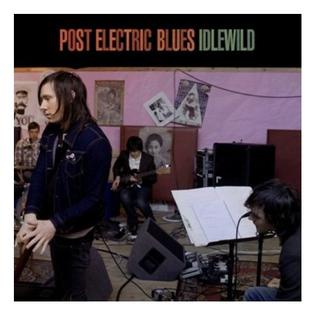
Post Electric Blues is the seventh studio album by Scottish indie rock band Idlewild, self-released to around 3000 fans in June 2009. The album was subsequently released on 5 October 2009 on Cooking Vinyl. Prior to recording, guitarist Rod Jones revealed that the album has "quite an upbeat musical feel," and that it sounds "like a band having a good time."

The discography of British rock band Athlete comprises four studio albums, two live albums, one compilation album, fourteen singles and three extended plays (EP). They formed in 2000 with a line-up consisting of vocalist and guitarist Joel Pott, bassist Carey Willetts, keyboardist Tim Wanstall and drummer Steve Roberts.




















